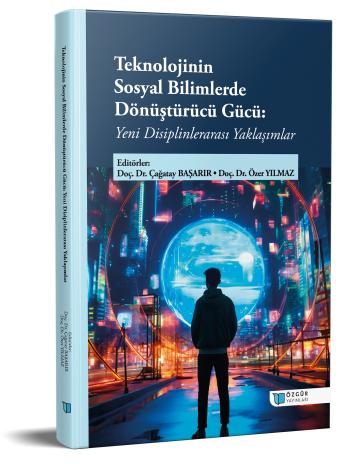
Technology-Based Innovative Applications in the Food and Beverage Industry
Chapter from the book:
Başarır,
Ç.
&
Yılmaz,
Ö.
(eds.)
2024.
The Transformative Power of Technology in Social Sciences: New Interdisciplinary Approaches.
Synopsis
In the labor-intensive and human-centered tourism sector, technological advancements are increasingly being adopted due to their ability to enhance productivity, generate cost savings, and deliver various additional benefits. The use of technology not only improves customer satisfaction but also adds value to the sector, enhancing the competitiveness of businesses. Technology-based innovative applications have become key to gaining a competitive advantage and ensuring sustainable growth in the food and beverage industry. For this reason, monitoring and adopting technological developments is essential for businesses to meet customer expectations. At the same time, the use of innovative technologies is crucial for increasing operational efficiency, reducing costs, improving customer experience, and maintaining competitiveness within the industry. Therefore, businesses must adapt to technological changes and transition to digital transformation to align their services with emerging trends.
With the extensive use of high technology and digital transformation, digital ordering methods, including online orders and mobile applications, have become integral components of restaurant operations in the food and beverage industry. This transformation typically involves integrating digital tools for order processing, inventory management, and customer engagement. Additionally, robotic automation technologies used in the preparation and service of food and beverages ensure consistent quality while reducing labor costs. These technologies also enable real-time monitoring of food safety standards, facilitating compliance with industry regulations. Technologies such as mobile applications, contactless payments, and automated ordering systems streamline processes, making them more efficient and user-friendly. Moreover, data analytics and artificial intelligence (AI) can analyze customer preferences, optimize menus, and personalize marketing efforts. By predicting demand trends, these technologies enable the delivery of personalized customer service. Cloud solutions and Internet of Things (IoT) devices further enhance supply chain efficiency by providing real-time monitoring and improved resource management, ultimately promoting sustainability and growth within the sector. However, the process of integrating these technologies presents several challenges, including high investment costs, system integration difficulties, and the need for a skilled workforce capable of managing and operating advanced technologies. Additionally, the successful adoption of these technologies requires acceptance and adaptation by businesses, customers, and employees.
In conclusion, the integration of innovative technologies and the adoption of digital transformation in food and beverage businesses are critical for navigating the rapidly changing consumer habits and the increasingly competitive market environment. By meeting customer expectations, businesses can achieve significant advantages in terms of efficiency, quality, flexibility, and sustainability, thereby securing long-term success and competitiveness in the industry.

